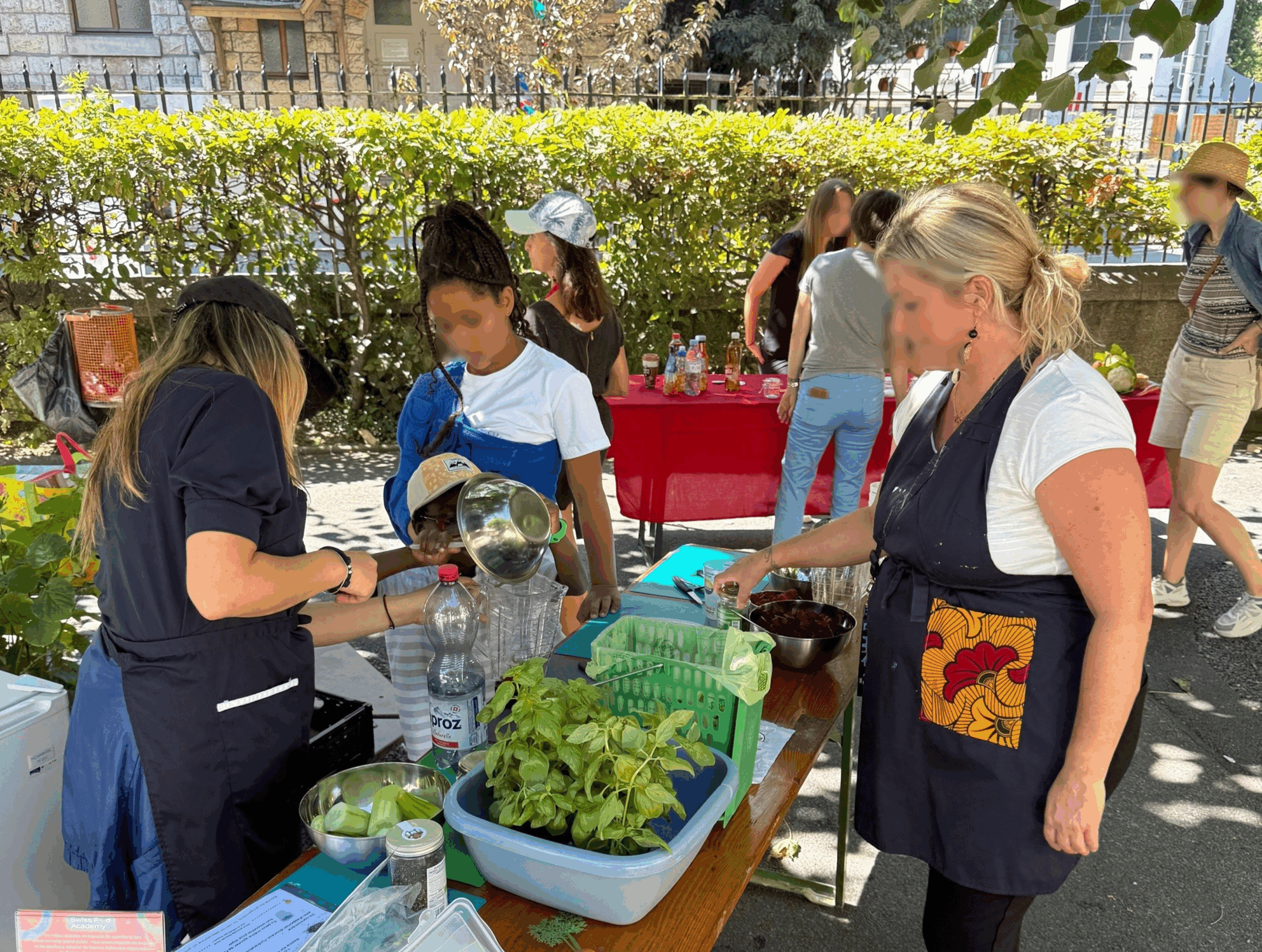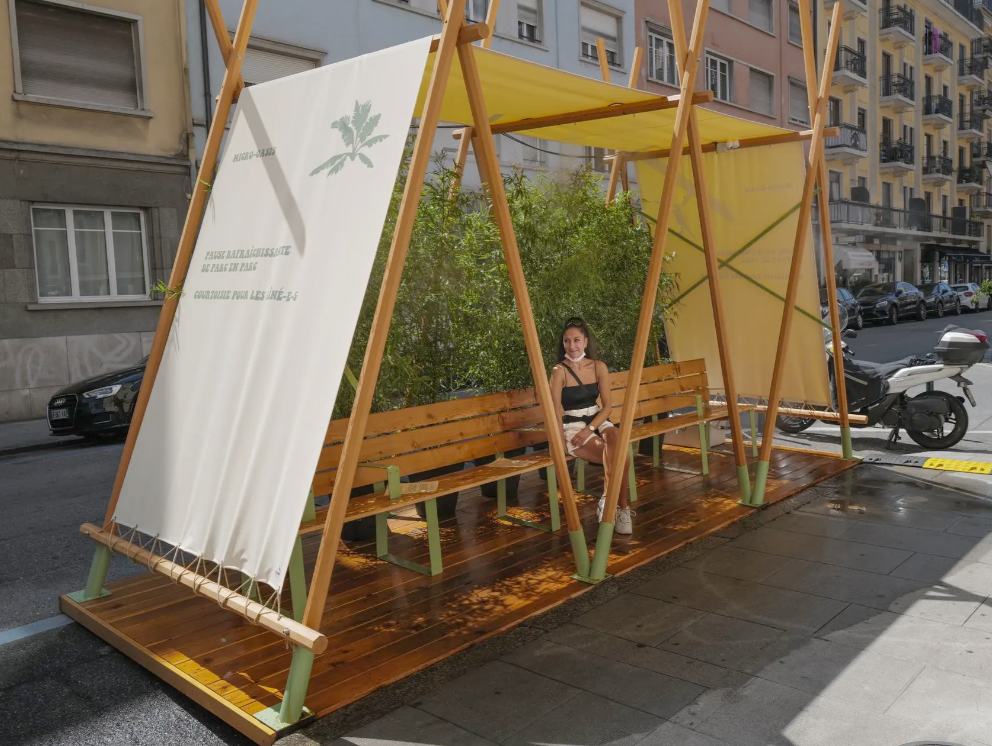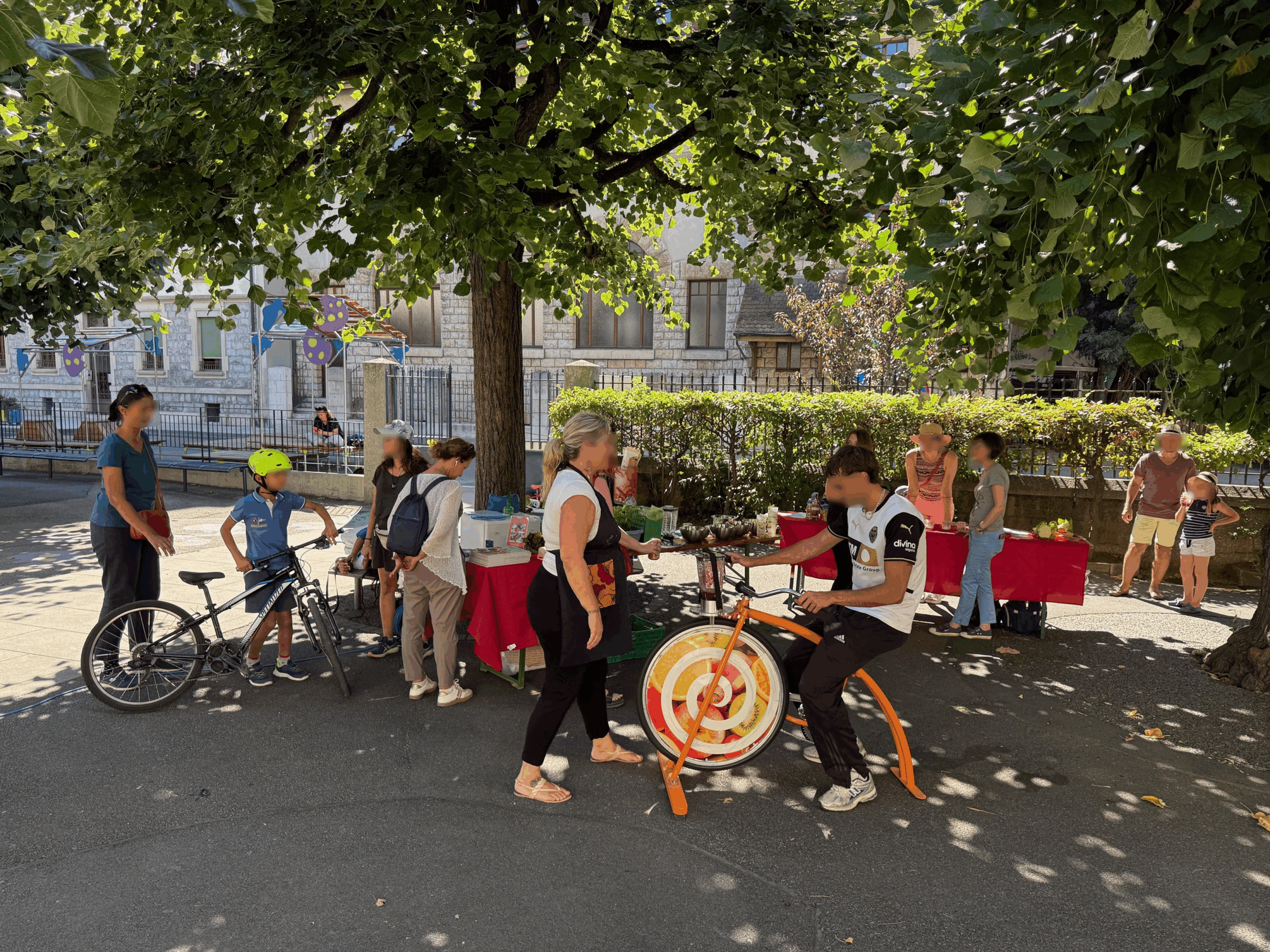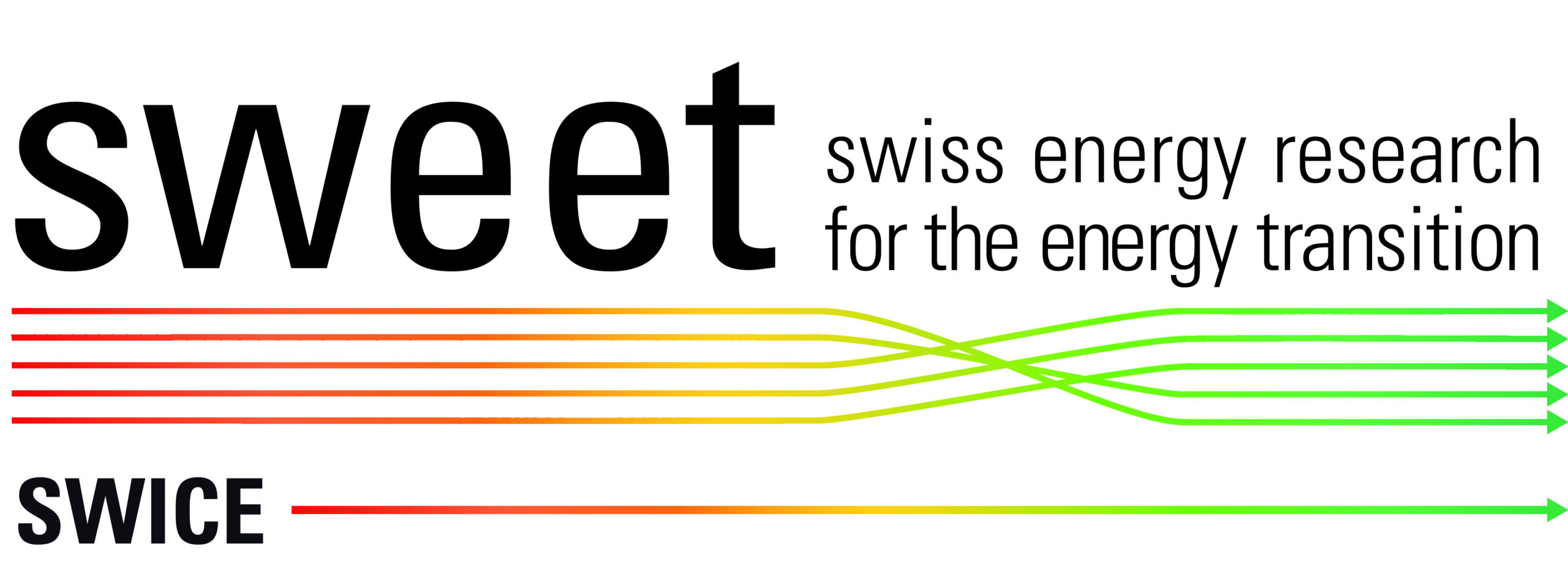Staying cool in a changing climate
As heatwaves increase in frequency and severity, SWICE WP5 is focused on two important questions: how do we transform the outdoors and change our habits to adapt to hotter summers? Can we do so in a way that prioritizes wellbeing, and using a using a low-tech, sufficiency-first approach? A team of social scientists led by Marlyne Sahakian has been busy all summer attempting to provide much-needed answers.
Outdoor comfort
Vulnerable citizens (especially the elderly) are regularly told to stay at home during heatwaves, which can lead to increased loneliness and other mental health issues. The Geneva team for SWICE WP5 is trying to change this paradigm, by making the outdoors safer and more pleasant for all. They set up a Living Lab in the neighborhood of La Jonction, in close collaboration with the City of Geneva, cantonal authorities, local businesses and various associations.
Temporary installations to cool down the outdoors
This summer, the City built a range of temporary installations known as micro-oasis sites, including benches, mist sprayers, and shading structures, both through vegetation and material shading. The Geneva WP5 team also contributed to the participatory construction of new shading installations in a main square in the neighborhood. SWICE researchers have collected qualitative data from users of these spaces, using surveys, interviews and observations. The analysis phase will start in September.



Changing habits
Adapting physical infrastructures is only one part of the equation to combat excessive heat. Citizens also need to learn new habits for keeping cool, including eating light, finding cool spots in the city, or wearing loose clothing. The Geneva WP5 team supported a range of local events, from cooking classes to guided tours, where they provided participants with cooling devices, such as hand fans and small water-spray bottles. They interacted with over 300 people in the streets of La Jonction, where meaningful discussions took place around how to cool bodies in open spaces. The team conducted short surveys in situ, some of which led to follow-up in-depth interviews.
A multi-faceted approach
Appropriate infrastructure and changing habits can go a long way towards reducing the negative effects of heatwaves on our wellbeing, but institutional changes are also needed. One example is adapting our working patterns and rhythms during the summer. For many generations, Swiss people have learnt the best strategies for staying warm in winter months. Given our changing climate, we must now acquire new competencies for keeping cool – at the individual, building, and neighborhood level.
A network of partners
The activities of the Geneva WP5 would not have been possible without a strong focus on participation, which is key to the success of a Living Lab. Aside from the City of Geneva and cantonal authorities, the Geneva WP5 has also benefitted from the active participation of associations including Grands-parents pour le Climat, AIDEC, CODHA, the Swiss Food Academy, and the Musée d’Ethnographie (MEG)
